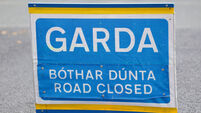Law failing to get hot under white collar
“An apparent failure to investigate thoroughly — yet efficiently and expeditiously — possible criminal wrongdoing in the commercial/corporate sector does nothing to instil confidence in the criminal justice system as applicable to that sector,” he said.
A similar sentiment was once expressed in song by Bob Dylan. “Steal a little and they throw you in jail, steal a lot and they make you a king.”














